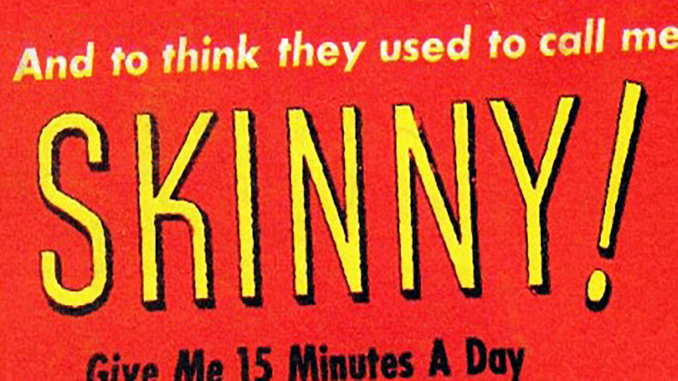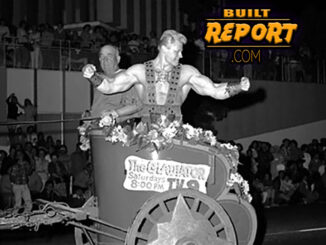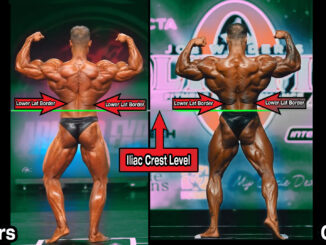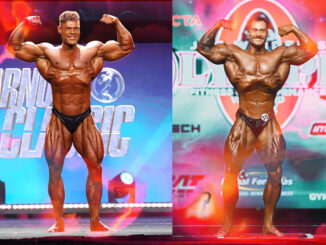
The evolution of bodybuilding advertising, particularly during the era of Charles Atlas and Joe Weider, reflects a dramatic shift in marketing strategies—one that utilized a unique blend of motivation and, at times, unapologetic skinny-shaming. Atlas, a trailblazer in this domain, laid the groundwork with ads that unabashedly targeted those deemed too skinny. The headline, “HEY, SKINNY!!! YER RIBS ARE SHOWING!!!! DON’T BE HALF A MAN!” echoed the sentiment of a culture that equated physical robustness with true masculinity.
Not to be outdone, Joe Weider, a master of understanding the psychological triggers of his audience, adopted a similar approach. His readers were directly addressed as “Skinny,” a term laden with connotations of weakness and inadequacy. The message was clear: purchase Weider’s products, or risk being perceived as a “skinny weakling.”
Headlines from Weider’s magazines further intensified this message, employing phrases like “STOP BEING A WEAKLING!!!” alongside images of former-skinny success stories like Bill Pearl. The relentless campaign continued with declarations such as “WHY BE A SKINNY WEAKLING!!!!” and provocations to “Stop being a physical dwarf!” The underlying premise was to eradicate skinniness, positioning it as a condition that warranted correction.
The notion of “Pick out the body you want… IN PLACE OF YOUR PUNY WEAKNESS!!!” became a rallying cry, reinforcing the idea that achieving a robust physique was a direct antidote to perceived physical shortcomings. The tagline “nobody likes a bag of bones” encapsulated the prevailing societal disdain for those who fell short of the muscular ideal.
Even specific individuals like Chuck Sipes and Frank Zane, who overcame their “skin and bones” status, were featured prominently in Weider’s narrative. The solution, as presented in the ads, lay in the consumption of a scrumptious Weight-Gaining bar—a tangible manifestation of the pathway from perceived weakness to physical prowess.
In dissecting these advertising strategies, it becomes evident that the messaging was not merely about promoting products; it was a narrative that leveraged societal ideals, aspirations, and insecurities to propel individuals on a quest for physical transformation. The echoes of this approach resonate even today, underscoring the lasting impact of Atlas and Weider on the psychology of bodybuilding enthusiasts.




Be the first to comment